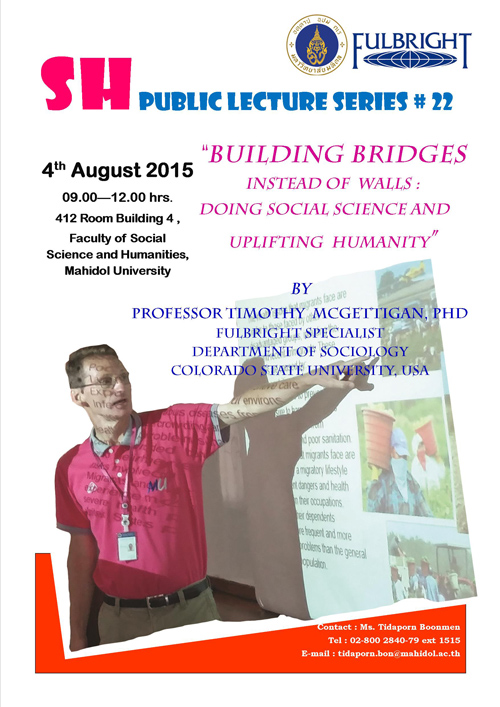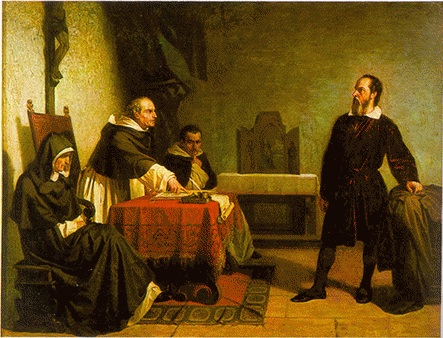Following the invention of the first telescope in 1608, Galileo took up this new instrument with uncommon zeal. Imperfect as early telescopes may have been, Galileo was nonetheless enthralled by the wonders that his new star-gazing tool exposed. One glance through the telescope revealed that there was much more to the heavens than anyone had previously imagined: more stars, more planets, more beauty and more anomalies. Indeed, Galileo is credited with making a plethora of astronomical discoveries that served to both delight and alarm his contemporaries. Ultimately, Galileo's most controversial discovery resulted from his scrutiny of the planet Jupiter.
Following repeated observations, Galileo was astounded to discover that there were objects that moved in a steady circuit around Jupiter. Those objects were faint enough that, even on the clearest of nights, it would have been impossible to discern their existence without the aid of a telescope. However, with the help of his new stargazing instrument, the objects became clear enough to convince Galileo that he had witnessed a wondrous new truth: Jupiter had moons.
To put it mildly, Galileo's discovery represented a major scientific breakthrough. No earth-dweller had ever observed satellites in orbit around another world. Although one might suppose that Galileo's revelation would have inspired widespread celebration, in fact, Galileo's landmark discovery invoked the ire of a truly lethal adversary. Whereas Galileo may have hoped to blaze a new path through the heavens, he would soon witness his work condemned as an unwelcome intrusion upon inviolable terrain.
Galileo lived at a time when the Catholic Church was Europe's foremost political power. The medieval Church comprised a vast international organization at a time when most other European political entities were no larger than city-states or feudal fiefdoms. As is the case with most theological systems, faith was the glue that bound the entire Catholic superstructure together. Expressions of faith not only defined the parameters of membership in the Catholic Church, but faith also delimited the boundaries of acceptable intellectual inquiry. For Catholics, The Truth was defined by the established parameters of Catholic dogma (e.g., God created the universe in six days). In other words, so long as the faithful restricted their intellectual inquiries to the limits prescribed by the Church, then such choreographed mental exercises would conveniently reproduce faith in Church doctrine.
For those who govern through the strictures of faith, doubt is equivalent to disobedience. Not only does doubt connote a certain degree of disrespect for sacred beliefs (i.e., "good" Catholics all had an obligation to embrace the sacred word of God), but doubt also weakens organizational structures that are founded upon blind obedience to faith. In other words, doubt implies that faith-based belief systems are somehow inadequate. As such, doubt also portends a quest for knowledge that lies outside the authorized realms of inquiry. By thinking outside the box, it becomes possible for doubters to generate novel observations that are not only distinct from, but that are often directly contradictory to established beliefs. As a result, free-thinkers tend to evoke antipathy among those who maintain a vested interest in the status quo.
For example, cognizant of the hostility that his radical new perspective was likely to inspire, Copernicus literally delayed until he arrived on his deathbed to unveil the culmination of his lifework: a heliocentric theory of the universe. Quietly and systematically, Copernicus had nurtured his doubts about geocentrism until he managed to invent a more convincing theory of heavenly motion: Copernicus moved the sun to the center of the universe. Modest as this astronomical shift may have been, Copernicus was convinced that his sun-centered theory would invoke the ire of the medieval theological establishment. Though Copernicus' deathbed revelation might seem to over-dramatize the danger that he faced, in fact, Galileo would soon discover that his colleague's fears were well-founded.
Galileo was acquainted with Copernicus' heliocentric theory, and he was also sensible of the reasoning behind its near-posthumous publication. Though more subtle, Galileo's discovery of Jupiter's moons posed yet another serious threat to geocentric theory. Once again, geocentric theory asserts that the entire universe revolves around earth. However, Galileo's observations suggested that there were in fact multiple centers in the universe. In such a universe, the earth would descend from lofty preeminence to a stature of banal equivalency with every other object in creation. As a result, the earth's rulers could no longer base their mandates on the logic of The Great Chain of Being. That is, if the earth was nothing special, then the same would also be true of its denizens. A demotion for the earth implied a similar demotion for its formerly exalted leaders.
Aware that he was skating on thin ice, Galileo sought advice from a number of key power-brokers before going public. Though it was clear that not every member of the Catholic hierarchy was enamored of Galileo's discoveries, in the end, the plaudits that he received, particularly those from Pope Urban VIII, convinced Galileo that it would be safe to publish. Yet, in spite of Galileo's precautions, shortly after publishing a monograph that commented favorably upon heliocentrism, the Inquisition sent Galileo a summons.
In 1633, the Inquisition subjected Galileo to extended interrogation. During the course of this inquiry, Galileo affirmed that he had indeed advocated the plausibility of heliocentrism. Given that Galileo was a famous scholar who was also blessed with impressive political connections, the Inquisition was inclined to be lenient. Instead of handing down an outright conviction of heresy--which would have incurred a death sentence--the Inquisition offered Galileo an olive branch: Galileo could recant. Thus, Galileo was faced with two very unpalatable alternatives. Either Galileo could take a principled stand and affirm his heretical support for heliocentrism, or he could eat crow and renounce his former position. Further complicating matters, Galileo had more than his own life to consider. If he were to be convicted of heresy, the stigma of his sentence would also extend to his family. Given the harrowing implications of a heresy conviction, Galileo decided that he had no choice but to recant. The truth be damned.
Thus, the Inquisition had won. Not only did Galileo publicly reverse his position on heliocentrism, but the Inquisition kept him under house arrest for the rest of his days. Anyone who could pose such a dire threat to geocentrism was best kept under close surveillance. Indeed, the watchful eye of the Inquisition and the ever-present threat of a renewed heresy charge produced the intended effect. As Galileo, whiled away his remaining years, his scientific inquiries dwindled to nothing. Galileo was defeated and his ideas had been crushed by an overbearing ideology.
Or had they...?
Tim McGettigan is a professor of sociology and the author of Good Science: The Pursuit of Truth and the Evolution of Reality.
The photo of Galileo facing the Inquisition was provided by courtesy of Cristiano Banti [Public domain], via Wikimedia Commons.






